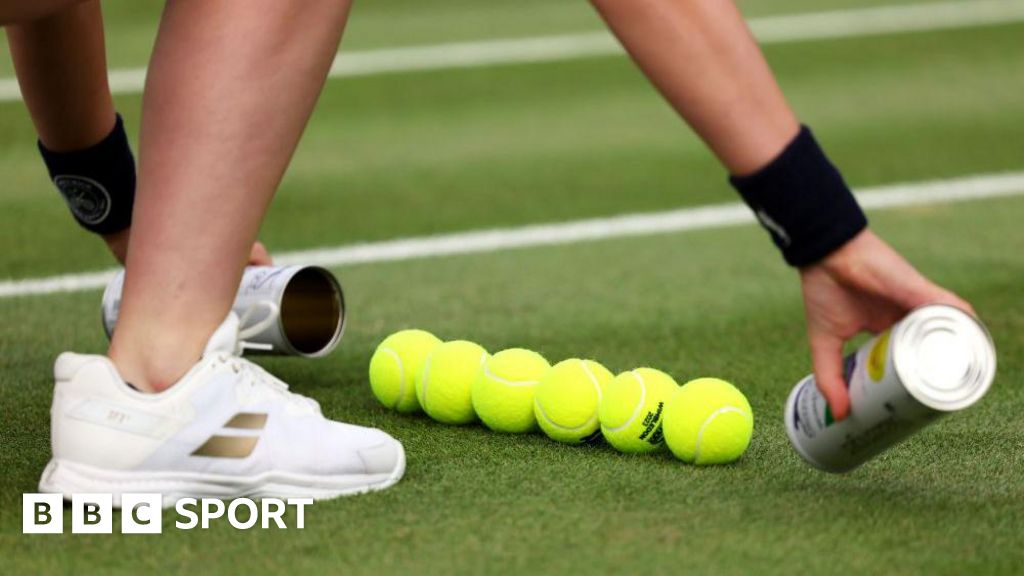A working group has been set up, involving the ITF, manufacturers and other federations, specifically to look at sustainability in tennis. The ITF said tennis balls have emerged as the main focus when it comes to equipment.
The ITF’s lab in Roehampton, south-west London, a few miles from The All England Lawn Tennis Club, is home to a number of robots that test balls and racquets, as well as a wind tunnel powered by an ancient computer, which is used to test the aerodynamics of balls.
The prototype shown to BBC Sport – which will be presented to ball manufacturers and other stakeholders in the coming weeks – features a polymer outer shell with holes, as opposed to the normal fabric coating over the rubber core.
Those involved in its design say that it is still very early stages and there could yet be a better solution, but said it shows how the ITF is trying to “stimulate innovation in the industry” and be “proactive”.
“We’ve been looking at this for the past few months,” said Jamie Capel-Davies, head of ITF Science and Technical Department, who has outlined three key areas to determine whether this design is viable.
“The first, most important, from a sustainability [point of view], is: is it actually a net benefit in terms of the associated CO2 emissions of production and the life of the ball?”
The team will look to test the life cycle of the new design versus the conventional ball.
“The second thing is, does the ball perform like a conventional tennis ball?
“And then the third thing is, are there any practical considerations? What’s the feasibility, the cost, the economics and so forth of this type of design?”
Capel-Davies says there is still some way to go before deciding whether this prototype is the solution – but they will continue to weigh-up the options.

